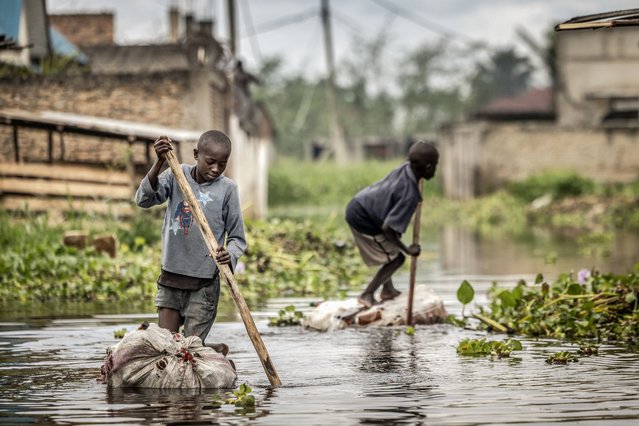
Children float on rafts made from plastic bottles in a flooded residential area, where rising waters from Lake Tanganyika have inundated homes in the Kinyinya III neighborhood of Gatumba, on May 9, 2025. Water levels at lakes in East Africa are rising alarmingly fast. The effects of climate change have worsened the floods of Africa's second-largest lake, often preventing the Ruzizi River from flowing into it. Lake Tanganyika has been above its normal level since 2018 and has been displacing people for years. (Photo by Luis Tato/AFP Photo)
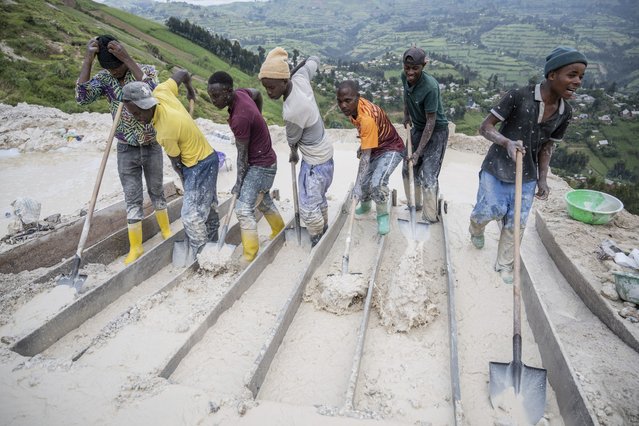
Miners work at the D4 Gakombe coltan quarry in Rubaya, Democratic Republic of Congo, on Friday, May 9, 2025. (Photo by Moses Sawasawa/AP Photo)
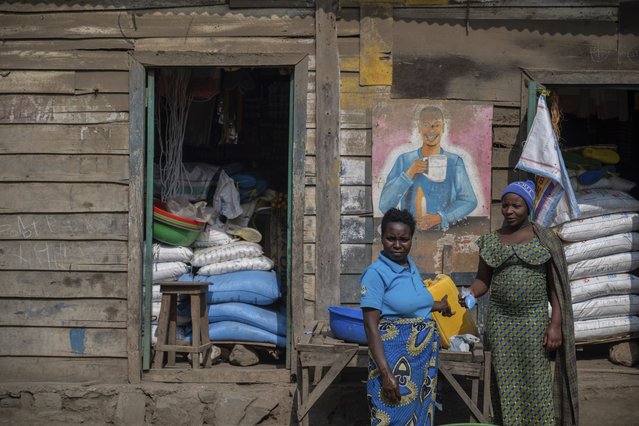
Two women stand together in the town near the coltan mining quarry in Rubaya, Democratic Republic of Congo, on Friday, May 9, 2025. (Photo by Moses Sawasawa/AP Photo)
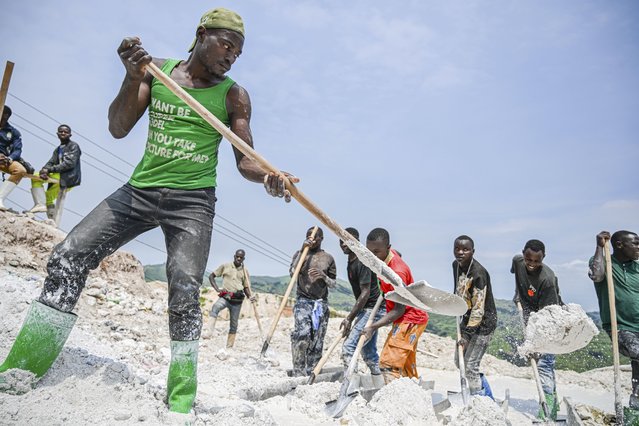
Miners work at the D4 Gakombe coltan quarry in Rubaya, Democratic Republic of Congo, on Friday, May 9, 2025. (Photo by Moses Sawasawa/AP Photo)
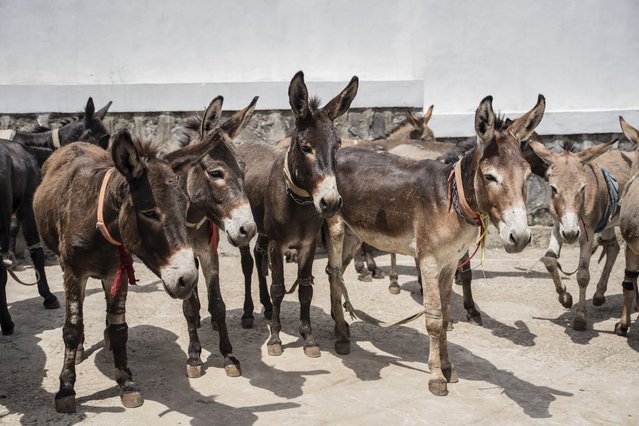
Donkeys wait to receive care at a clinic in Addis Ababa, Ethiopia, on May 15, 2025. Ethiopia is thought to have the most donkeys in the world, one in five of the global total according to the United Nations, and they form a vital part of the economy. The UN Food and Agriculture Organisation says Ethiopia had some 9 million donkeys in 2018. They play a major economic role in the East African country of around 130 million people, ploughing fields and transporting goods. Donkeys offer a cheaper alternative to cars at a time when petrol prices have risen sharply. (Photo by Amanuel Sileshi/AFP Photo)
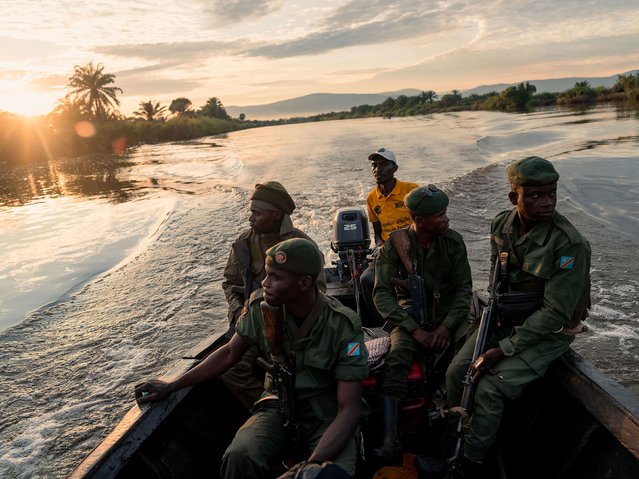
A team of rangers from Upemba National Park travel along the Lufira river on May 22, 2025 in Kasenga, Democratic Republic of Congo. Covering an expansive area of nearly 800 square miles (12,751 square kilometers) in the south-east of the Democratic Republic of Congo (DRC), Upemba National Park is one of Africa's oldest national parks and home to many vulnerable species - including the critically endangered savanna elephants. Recent crises in the DRC have compounded the difficulties the park's rangers face in protecting the herd of around 200 elephants, as they face multi-pronged threats from militants and poachers. (Photo by Hugh Kinsella Cunningham/Getty Images)
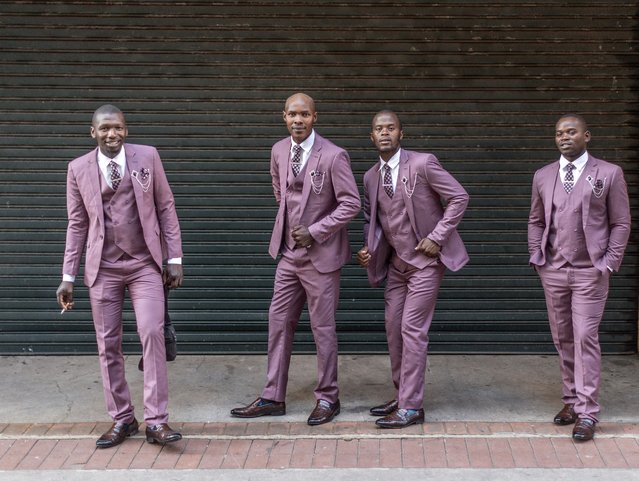
Members of a traditional Isicathamiya group pose for a photo outside the Natal Playhouse Theatre during an Isicathamiya concert in Durban on May 24, 2025. The concert includes several groups showcasing the Isicathamiya style, an a capella choral singing style developed in South Africa by migrant Zulu communities. (Photo by Rajesh Jantilal/AFP Photo)
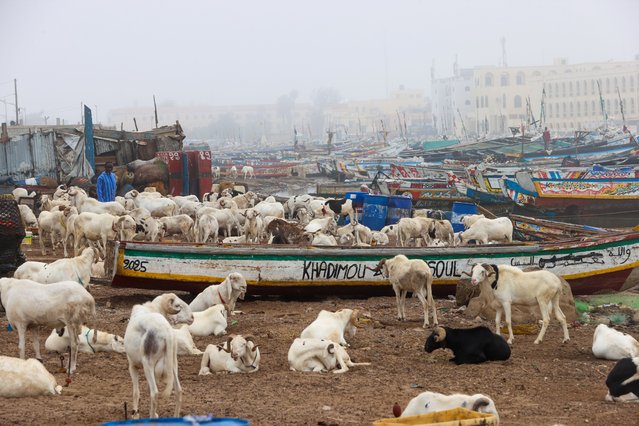
Senegalese prepare for the upcoming Muslim holy festival Eid-Al-Adha, also locally known as “Tabaski” in Volofian language, as the people of St. Louis and Dakar host sheep markets on every corner in Dakar, Senegal on May 27, 2025. Some Senegalese carry them on top of their cars, some on top of public transportation vehicles and take them to their homes. Especially on intercity roads, it is a common sight to see sheep skillfully tied to the tops of buses or vehicles. (Photo by Cem Ozdel/Anadolu via Getty Images)
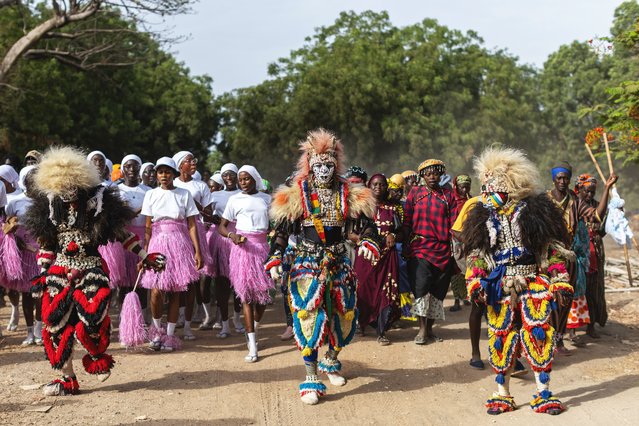
People take part in the Senegambia Cross-border Friendship Festival, known as the Niumi Badiya Festival, in Toubacouta, Senegal, 31 May 2025. The Niumi Badiya Festival, organized in partnership with the Gambia, showcases the cultural similarities and differences between the neighboring countries. The geographic area known as Senegambia was split during the 19th century after Senegal was colonized by the French, and the Gambia colonized by the British. Senegal and Gambia share historical, cultural, and ancestral ties and a diversity of people which includes the Wolof, Serere, Peul, Tukulor, Mandinkas, Soninkes, Jolas, and Bainunkas. (Photo by Jérôme Favre/EPA/EFE)
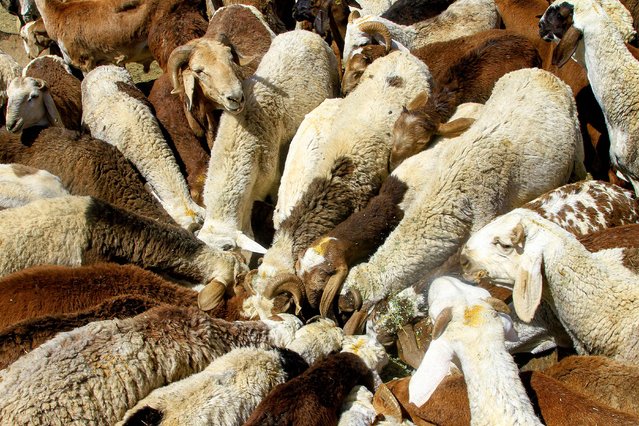
Animals feed at a livestock market in Omdurman, the twin-city of the Sudanese capital, on June 1, 2025 as people shop for sheep and goats to prepare ahead of Eid al-Adha, the Muslim feast of sacrifice. (Photo by Ebrahim Hamid/AFP Photo)
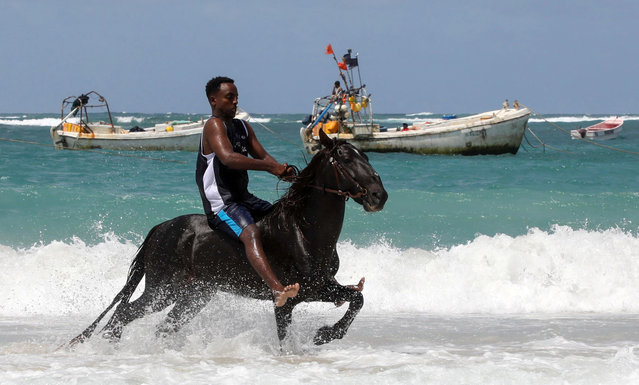
A man rides a horse in the water on Liido beach in Abdiaziz district, Mogadishu, Somalia, on June 2, 2025. (Photo by Feisal Omar/Reuters)
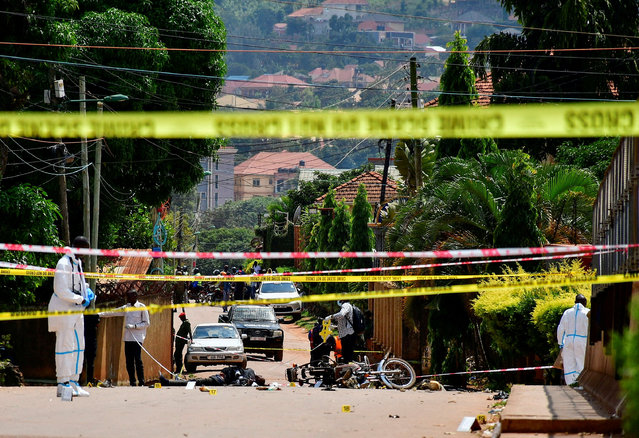
Forensic experts secure the scene of a bomb blast near the Munyonyo Martyrs' Shrine, a Roman Catholic shrine as Ugandans assembled to celebrate Martyrs' Day, which commemorates Christians who were killed for their faith in the 19th century, in Munyonyo suburb of Kampala, Uganda on June 3, 2025. (Photo by Abubaker Lubowa/Reuters)
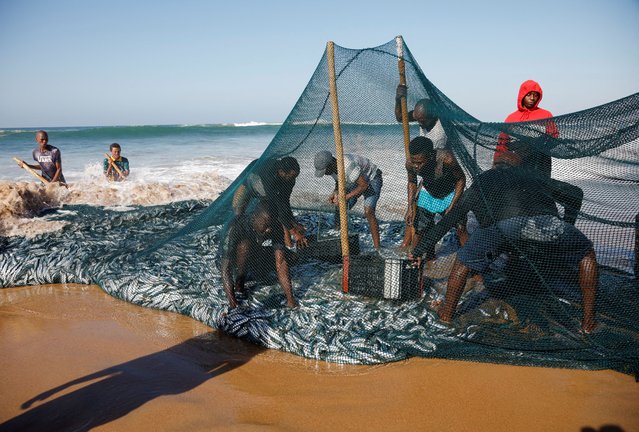
Fishermen fill crates with sardines netted during the annual sardine run in Warner Beach, South Africa on June 3, 2025. (Photo by Rogan Ward/Reuters)
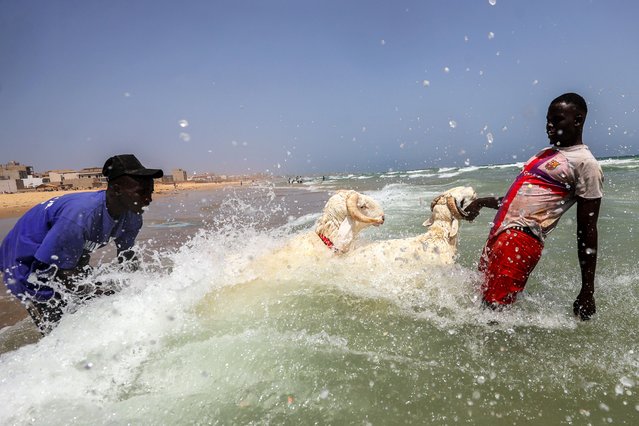
People, including children wash their sheep in the ocean ahead of Eid al-Adha in Dakar, Senegal on June 3, 26, 2024. The washing of sacrificial sheep before they are sold or delivered to their owners before Eid al-Adha, known as “Tabaski” in the local language, is considered one of the most important sacrificial traditions. They are first washed in the sea and then cleaned with a brush on the beach. (Photo by Cem Ozdel/Anadolu via Getty Images)
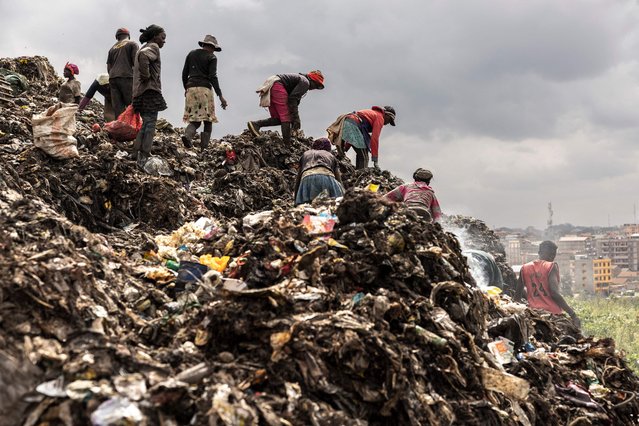
Women recyclers collect garbage at the dumping site at the Dandora informal settlement in Nairobi, on 4 June, 2025. World Environment Day is celebrated annually on 5 June and encourages awareness and action for the protection of the environment. (Photo by Simon Maina/AFP Photo)
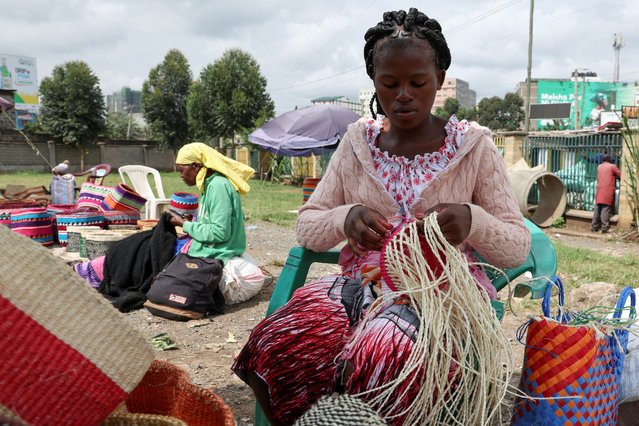
Grace Muinde weaves sisal and recycled polythene to make a traditional handwoven basket known as Kiondo at the Mwariro Market in Kariokor district of Nairobi, Kenya on June 4, 2025. (Photo by Monicah Mwangi/Reuters)
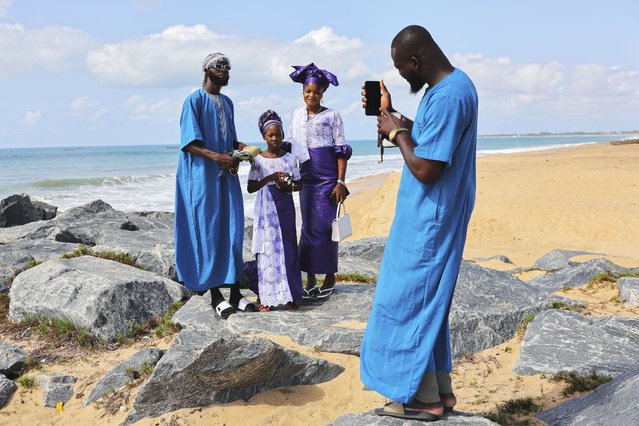
A family poses for photograph at a beach after Eid al-Adha prayers in Keta, Ghana, Friday, Jun 6, 2025 (Photo by Misper Apawu/AP Photo)
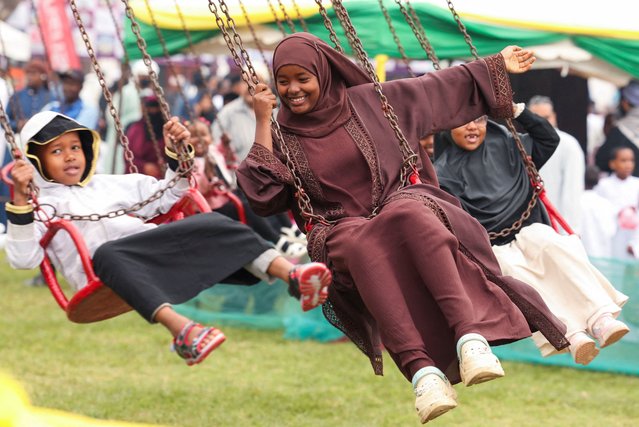
Muslims sit on a fun-fair merry go round after attending prayers to mark the Muslim holiday of Eid al-Adha at the Sir Ali Muslim Club Ground Nairobi, Kenya, on June 6, 2025. (Photo by Monicah Mwangi/Reuters)
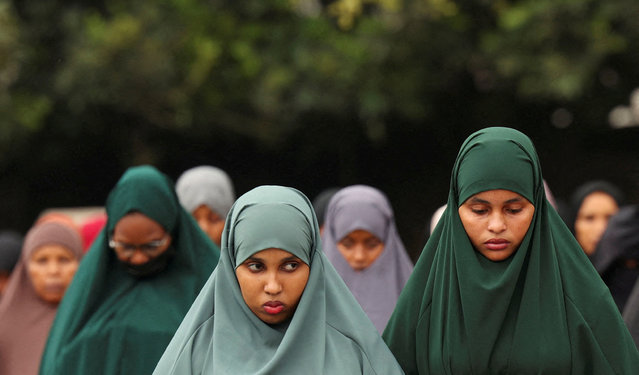
Muslim faithful attend prayers to mark the Muslim holiday of Eid al-Adha at the Sir Ali Muslim Club Ground in Nairobi, Kenya, on June 6, 2025. (Photo by Monicah Mwangi/Reuters)
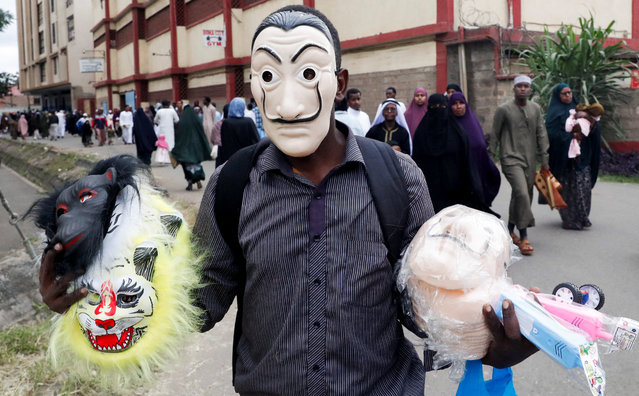
A vendor wears a face mask as he carries others for sale, as Muslims leave after prayers on the first day of the Muslim holiday of Eid al-Adha, outside the Sir Ali Muslim Club Ground in Ngara district of Nairobi, Kenya, on June 6, 2025. (Photo by Monicah Mwangi/Reuters)
28 Jun 2025 05:14:00,
post received
0 comments
